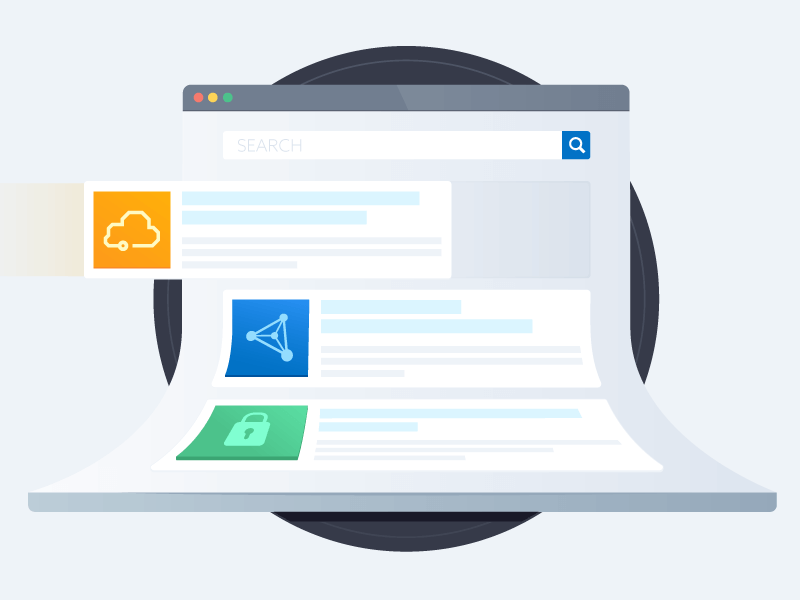5 Key Findings for Cloud Data Security Professionals from ESG's Survey
Blog Article Published: 03/02/2023
Originally published by Sentra.
Securing sensitive cloud data is a key challenge and priority for 2023 and there's increasing evidence that traditional data security approaches are not sufficient. Recently, Enterprise Strategy Group surveyed hundreds of IT, Cloud Security, and DevOps professionals who are responsible for securing sensitive cloud data. The survey had 4 main objectives:
- Determine how public cloud adoption was changing data security priorities
- Explore data loss - particularly sensitive data - from public cloud environments.
- Learn the different approaches organizations are adopting to secure their sensitive cloud data.
- Examine data security spending trends
The 26 page report is full of insights regarding each of these topics. In this blog, we’ll dive into 5 of the most compelling findings and explore what each of them mean for cloud data security leaders.
More Data is Migrating to the Cloud - Even Though Security Teams Aren’t Confident they Can Keep it Secure.
ESG’s findings show that currently 26% of organizations have more than 40% of their company’s data in the cloud. But in 24 months more organizations ( 58%) will have that much of their data in the cloud.
On the one hand, this isn’t surprising. The report notes that digital transformation initiatives combined with the growth of remote/hybrid work environments are pushing this migration. The challenge is that the report also shows that sensitive data is being stored in more than one cloud platform and when it comes to IaaS and PaaS data, more than half admit that a large amount of that data is insufficiently secured. In other words - security isn’t keeping pace with this push to store more and more data in the public cloud.
Cloud Data Loss Affects Nearly 60% of Respondents. Yet They’re Confident They Know Where their Data is
59% of surveyed respondents know they’ve lost sensitive data or suspect they have (with the vast majority saying they lost it more than once). There are naturally many reasons for this, including misconfigurations, misclassifications, and malicious insiders. But at the same time, over 90% said they’re confident in their data discovery and classification abilities. Something doesn’t add up. This gives us a clear indication that existing/defensive security controls are insufficient to deal with cloud data security challenges.
The problem here is likely shadow data. Of course security leaders would secure the sensitive data that they know about. But you can’t secure what you’re unaware of. And with data being constantly moved and duplicated, sensitive assets can be abandoned and forgotten. Solving the data loss problem requires a richer data discovery to provide a meaningful security context. Otherwise, this false sense of security will continue to contribute to sensitive data loss.
Almost All Data Warehouses Have Sensitive Data
Where is this sensitive data being stored? 86% of survey respondents say that they have sensitive data in data lakes or data warehouses. A third of this data is business critical, with almost all the remaining data considered ‘important’ for the business.
Data lakes and warehouses allow data scientists and engineers to leverage their business and customer data to use analytics and machine learning to generate business insights, and have a clear impact on the enterprise. Keeping this growing amount of business critical sensitive data secure is leading to increasing adoption of cloud data security tools.
The Ability to Secure Structured and Unstructured Data is the Most Important Attribute for Data Security Platforms
With 45% of organizations facing a cybersecurity skills shortage, there’s a clear movement towards automation and security platforms to pick up some of the work securing cloud data. With data being stored across different cloud platforms and environments, two thirds of respondents mentioned preferring a single tool for cloud data security.
When choosing a data security platform, the 3 most important attributes were:
- Data type coverage (structured and unstructured data)
- Data location coverage
- Integration with security tools
It’s clear that as organizations plan for a future with increasing amounts of data in the public cloud, we will see a widespread adoption of cloud data security tools that can find and secure data across different environments.
Cloud Data Security has an Address in the Organization - The Cloud Security Architect
Cloud data security has always been a role that was assigned to any number of different team members. Devops, legal, security, and compliance teams all have a role to play. But increasingly, we’re seeing data security become the responsibility chiefly of the cloud security architect.
86% of organizations surveyed now have a cloud security architect role, and 11% more are hiring for this role in the next 12-24 months - and for good reason. Of course, the other teams, including infrastructure and development continue to play a major role. But there is finally some agreement that sensitive data requires its own focus and is best secured by the cloud security architect.
Trending This Week
#1 The 5 SOC 2 Trust Services Criteria Explained
#2 What You Need to Know About the Daixin Team Ransomware Group
#3 Mitigating Security Risks in Retrieval Augmented Generation (RAG) LLM Applications
#4 Cybersecurity 101: 10 Types of Cyber Attacks to Know
#5 Detecting and Mitigating NTLM Relay Attacks Targeting Microsoft Domain Controllers
Related Articles:
Key Findings from the 2024 State of Application Security Report
Published: 04/03/2024





